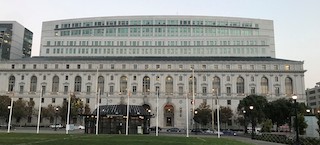Under Welfare & Institutions Code § 5350, also known as the Lanterman-Petris-Short (LPS) Act, a one-year conservatorship is authorized for those gravely disabled by a mental disorder or chronic alcoholism.
The LPS Act is one of nine involuntary commitment procedures available in California that may apply to persons who have various mental problems, and who pose a threat to their own welfare or the safety of others. Some of these laws operate independent of the criminal justice system, i.e., Welfare & Institutions Code § 4825 (developmentally disabled persons).
Conservatorship proceedings are civil in nature, so the constitutional protections afforded criminal defendants do not directly apply. However, the California State Legislature in Sacramento has extended many of the same constitutional rights by statute (see Penal Code § 1026.5(b)(7)) to persons committed after being found not guilty of a crime by reason of insanity (NGI’s). Among those rights extended by statute is the right not to give compelled testimony at trial. See Hudec v. Superior Court (2015) 60 Cal. 4th 815, 826.
 California Supreme Court San Francisco
California Supreme Court San Francisco
The factual background for the case is important to understand. The Contra Costa Public Guardian petitioned for an LPS conservatorship for Eric B. on the ground that he was gravely disabled. A psychiatrist testified that Eric B. had chronic schizophrenia, which required treatment with three medications and that Eric B. often was uncooperative with his treatment.
Counsel for Eric B. requested a jury trial on the petition and objected to giving compelled testimony based on the holding in Hudec, supra. The judge, Susan M. Fernstermacher, overruled the objection and ordered that he testify.
The facts leading to the petition were that when Eric B. refused to take his medication, his symptoms manifested themselves and he would damage his apartment looking for monitoring devices and he would change the door locks to keep others out. He believed others who posed no threat to him threatened him. He would not eat or wear clothes unless told to do so.
The trial on the petition then went forward and Eric B. was called to testify. Asked what he wanted to happen, he gave a rambling and partially incoherent response, asserting that he might not need a conservatorship because although he had a mental disorder, he believed he did not always need medications for it. When asked to further describe his situation, he said, “We’ll pass on this.”
He also added that he had no plans for where he would live or how he would support himself if released from the conservatorship. He testified that he might get a job, but acknowledged that he had not worked since 2011. When asked how he would pay for food, he answered, “Rely on the conservatorship.”
The jury found Eric B. gravely disabled. The judge then appointed the Public Guardian as conservator, ordered that Eric B. continue his current placement and restricted his ability to possess firearms and refuse treatment.
On appeal to the First Appellate District Court, he challenged the order compelling his testimony, arguing that because the right to silence is provided in NGI extension proceedings, equal protection required that the same should apply to the LPS context.
The First Appellate District agreed with Eric B. and held that LPS conservatees are similarly situated with NGI’s for this purpose, but ruled the error in compelling his testimony was harmless.
Since the First Appellate District expressly disagreed with the contrary holding in Conservatorship of Bryan S. (2019) 42 Cal. App. 5th 190, the California Supreme Court granted review to resolve the conflict.
The California Supreme Court affirmed the First Appellate District, finding that such a right not to give compelled testimony extended to the conservatee in an LPS proceeding. The Supreme Court first found that LPS conservatees and those who are NGI are similarly situated for purposes of the law challenged. LPS conservatees are subject to involuntary confinement that can be extended indefinitely as well as the loss of many personal rights.
We present this summary because an LPS conservatorship is often something discussed in criminal court proceedings when there is a defendant with extreme mental illness issues, so our readers may want to better understand the consequences of such a classification and commitment.
The citation for the California Supreme Court ruling discussed above is Public Guardian of Contra Costa County v. Eric B. (2022) 12 Cal. 5th 1085, 293 Cal. Rptr. 3d 93, 508 P. 3d 1099.
For more information about issues, please click on the following articles:
 California Supreme Court San Francisco
California Supreme Court San Francisco